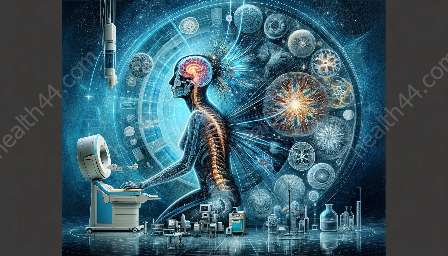Radiation plays a significant role in both radiobiology and radiology, particularly when it comes to its effects on stem cells and tissue regeneration. Understanding how radiation impacts these fundamental biological processes is pivotal in various fields, including medicine, biomedical research, and environmental science.
Understanding Radiobiology
Radiobiology is the study of the action of ionizing radiation on living things, particularly how it affects biological systems at the molecular, cellular, and organismal levels. This field encompasses a wide range of research areas, including the effects of radiation on DNA, cell cycle regulation, tissue responses, and the body's overall physiological reactions.
At the forefront of radiobiological research is the impact of radiation on stem cells. Stem cells are unique cells in the body that have the remarkable ability to develop into many different cell types. They play a critical role in tissue regeneration and repair, making them an essential focus in understanding the repercussions of radiation exposure.
Stem Cells and Radiation
When exposed to ionizing radiation, stem cells can be significantly affected. The ability of stem cells to self-renew and differentiate into various cell types may be compromised, leading to impaired tissue regeneration and repair. Understanding the specific mechanisms through which radiation influences stem cell function is crucial for both medical interventions and the development of radiation protection strategies.
Research in radiobiology has revealed that the effects of radiation on stem cells depend on several factors, including the dose, dose rate, and type of radiation. High doses of radiation can lead to the depletion and damage of stem cells, while lower doses may induce complex cellular responses that can impact tissue regeneration over time.
Implications for Tissue Regeneration
The impact of radiation on stem cells has profound implications for tissue regeneration. Tissues with high rates of cellular turnover, such as the bone marrow and epithelial tissues, are particularly susceptible to the effects of radiation on stem cells. Radiation-induced damage to these stem cell populations can result in compromised regeneration and long-term tissue dysfunction.
Moreover, in the context of medical treatments involving radiation, such as radiotherapy for cancer, understanding the effects on stem cells and tissue regeneration is paramount. Advances in radiobiology have led to strategies aimed at protecting healthy tissue stem cells during radiotherapy, thereby minimizing the long-term detrimental effects on tissue regeneration.
Radiology and Clinical Applications
Within the field of radiology, the understanding of radiation's effects on stem cells and tissue regeneration is essential for various clinical applications. Imaging modalities, such as computed tomography (CT) scans and fluoroscopy, involve exposure to ionizing radiation. It is critical to comprehend the potential impact of these imaging procedures on stem cells and tissues, particularly in pediatric and young adult patients who are still undergoing developmental processes.
Additionally, in the emerging field of interventional radiology, where minimally invasive procedures are performed under imaging guidance, considering the potential effects of radiation on stem cells and tissue regeneration is crucial for optimizing patient care and safety.
Challenges and Future Directions
The complexities of radiation's effects on stem cells and tissue regeneration present ongoing challenges and opportunities for research. Unraveling the intricate interplay between radiation and biological systems is essential for developing new therapeutic strategies, enhancing radiation protection measures, and advancing our understanding of regenerative medicine.
Conclusion
The study of radiation's impact on stem cells and tissue regeneration is a compelling and vital area of research that bridges the disciplines of radiobiology and radiology. From understanding the molecular mechanisms to addressing clinical implications, this multifaceted topic offers a rich landscape for exploration and innovation in the pursuit of improving healthcare and advancing scientific knowledge.


